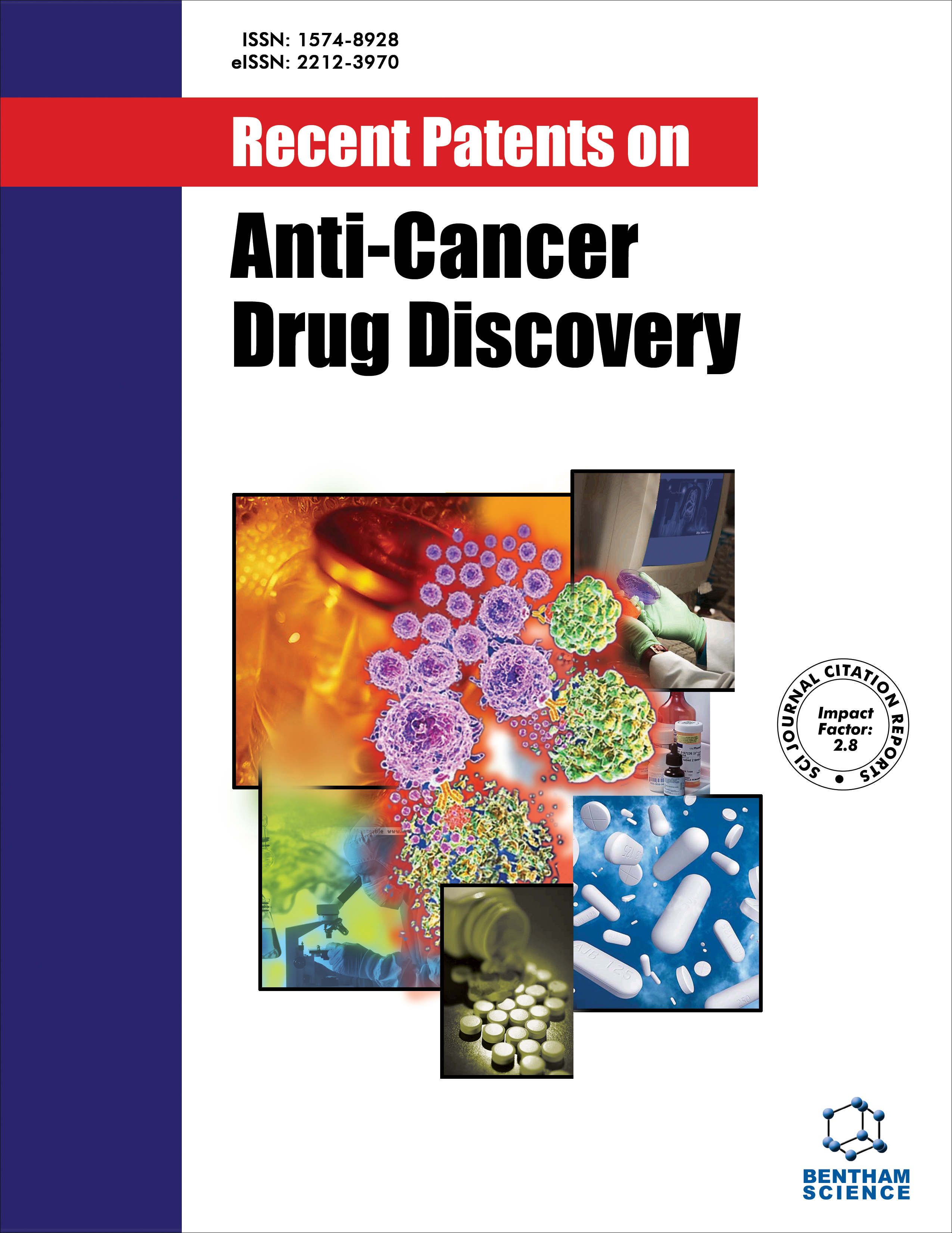-
s Application of Nanotechnology in the Treatment and Diagnosis of Gastrointestinal Cancers: Review of Recent Patents
- Source: Recent Patents on Anti-Cancer Drug Discovery, Volume 9, Issue 1, Jan 2014, p. 21 - 34
-
- 01 Jan 2014
Abstract
Gastrointestinal cancers remain one of the main causes of death in developed countries. The main obstacles to combating these diseases are the limitations of current diagnostic techniques and the low stability, availability, and/or specificity of pharmacological treatment. In recent years, nanotechnology has revolutionized many fields of medicine, including oncology. The association of chemotherapeutic agents with nanoparticles offers improvement in the solubility and stability of antitumor agents, avoidance of drug degradation, and reductions in therapeutic dose and toxicity, increasing drug levels in tumor tissue and decreasing them in healthy tissue. The use of specific molecules that drive nanoparticles to the tumor tissue represents a major advance in therapeutic specificity. In addition, the use of nanotechnology in contrast agents has yielded improvements in the diagnosis and the follow-up of tumors. These nanotechnologies have all been applied in gastrointestinal cancer treatment, first in vitro, and subsequently in vivo, with promising results reported in some clinical trials. A large number of patents have been generated by nanotechnology research over recent years. The objective of this paper is to review patents on the clinical use of nanoparticles for gastrointestinal cancer diagnosis and therapy and to offer an overview of the impact of nanotechnology on the management of this disease.


